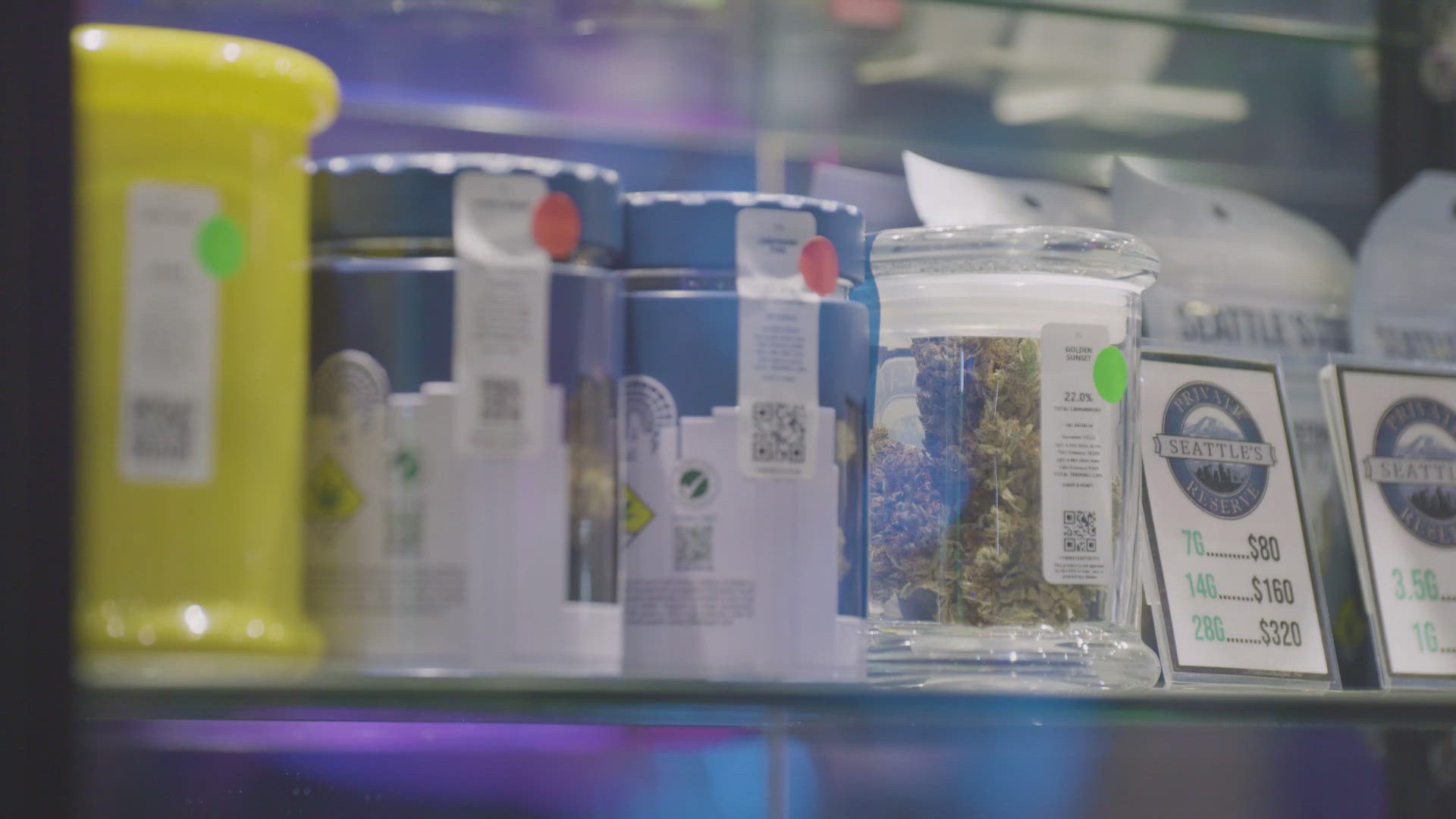SEATTLE — As the federal government mulls the decision of whether to reclassify marijuana as a less dangerous drug, industry leaders in Washington state are considering what the changes could mean to local consumers and researchers.
In May, President Biden announced the Department of Justice was considering a historic change in the way it classifies cannabis. Currently, it's known as a Schedule l drug in the eyes of the Drug Enforcement Administration (DEA), which puts it on par with drugs like heroin and methamphetamine. The designation also suggests cannabis has little to no value.
The Biden administration proposal would move cannabis to a less serious Schedule lll drug, with moderate to low potential for addiction.
"It can't come soon enough," said Dr. Susan Ferguson, director of the Addictions, Drug and Alcohol Institute at the University of Washington.
Ferguson and her researchers have felt hamstrung over the years by what they consider outdated federal regulation on cannabis. Currently, the lab is researching the effects of cannabis on mice in order to discover more non-addictive medications. Any new discoveries could mean a breakthrough in treating diseases like epilepsy.
However, the quality of cannabis they are allowed to research is extremely low because of the way it's scheduled at the federal level. This means cannabis supply is also quite limited.
"The type of cannabis they produce is very low potency," she said. "It's not what people are using at the dispensaries."
Opponents point to possible addiction and cannabis use disorder among teens as being a growing problem. It's a problem that Dr. Ferguson acknowledges. She says research, however, can provide important medical breakthroughs.
"I think it's really important to be able to open up the floodgates of research," said Dr. Ferguson. "We want to help inform the public and help inform policymakers to let them make their own informed decisions."
Yet, there are also skeptics within the industry. While cannabis shop owners would greatly benefit from the relaxing of federal regulation by allowing them to make business tax deductions, there is fear that it's now the beginning of the end of small retail stores.
"It's not viable much longer," said Ryan Kunkel. Kunkel was one of the first in Washington state to get into the retail marijuana business. At its peak, his 'Have a Heart' company owned 22 retail licenses in six states.
Now, Kunkel is getting out of the business and selling his stores. Today he's down to just a handful left in the Seattle market.
"It's a $60 billion business in the U.S. There's no way that big box retailers are not going to try and go after that," he said. "At some point in the future, cannabis will be sold next to alcohol and tobacco at grocery stores and everywhere else."
Kunkel does believe that reclassification at the federal level would mean lower prices for consumers.
During the public comment phase of Drug Enforcement Administration's rescheduling decision, a record 43,000 comments were submitted for consideration. That comment period ended on July 22.
There is still no timeline on when the DEA could make its final decision. The organization recently signaled there will be an administrative hearing on December 2. That would likely push any decision on the matter until into 2025.

